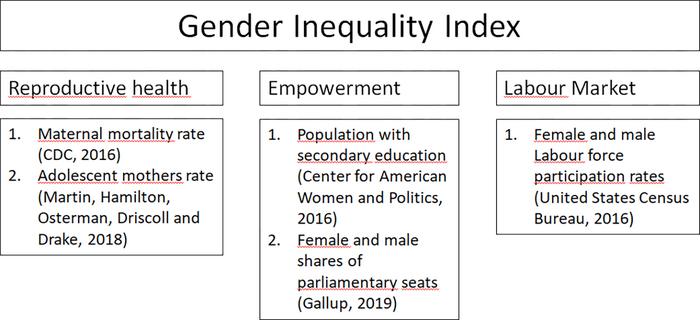Researchers have developed and validated a new tool for comparing gender inequality among different regions of a country, highlighting links between gender inequality, wellbeing, and participation in the #MeToo movement within the US. Bruno Gabriel Salvador Casara of New York University Abu Dhabi in the United Arab Emirates and colleagues present the tool and findings in the open-access journal PLOS ONE on July 17, 2024.

Credit: Salvador Casara et al., 2024, PLOS ONE, CC-BY 4.0 (
Researchers have developed and validated a new tool for comparing gender inequality among different regions of a country, highlighting links between gender inequality, wellbeing, and participation in the #MeToo movement within the US. Bruno Gabriel Salvador Casara of New York University Abu Dhabi in the United Arab Emirates and colleagues present the tool and findings in the open-access journal PLOS ONE on July 17, 2024.
Gender inequality is a persistent worldwide problem with negative impacts for women and for society in general. To assess gender disparities, the United Nations and other groups typically favor a scoring system known as the Gender Inequality Index, which incorporates measurements of women’s reproductive health, social and political empowerment, and participation in the labor market. However, this tool is designed to measure gender inequality only at the resolution of an entire country.
To enable within-country comparisons, Salvador Casara and colleagues adapted the Gender Inequality Index for state-level resolution. They demonstrated the new tool’s effectiveness by analyzing gender-inequality dynamics among states within the US.
They found that US states were “substantially gender-unequal overall”. Arkansas, Louisiana and Oklahoma scored highest for gender inequality, while Massachusetts, California and Maine scored lowest.
States with a higher index score—indicating greater gender inequality at the expense of women—tended to score lower on measures of women’s wellness, including life satisfaction, financial wellbeing, and feeling safe. Men in these states also tended to have somewhat lower financial wellbeing, in line with prior research linking gender inequality with overall poorer economic growth.
The researchers also used Twitter data to test the link between gender inequality and involvement in the #MeToo movement, which pushed for greater awareness of sexual abuse and violence against women. They found that states with higher inequality scores tended to generate fewer tweets with the #MeToo hashtag, suggesting that greater gender inequality may diminish awareness and activism around #MeToo issues.
In addition, states with more conservative political leanings tended to have higher gender inequality scores.
The researchers call for further research to deepen understanding of the implications of their findings. Meanwhile, they note, their analysis demonstrates that the state-level Gender Inequality Index could be a valuable tool for policymakers and advocates to study and address gender disparities within specific regions of a country.
#####
In your coverage please use this URL to provide access to the freely available article in PLOS ONE:
Citation: Salvador Casara BG, Lucarini A, Knowles ED, Suitner C (2024) Unveiling gender inequality in the US: Testing validity of a state-level measure of gender inequality and its relationship with feminist online collective action on Twitter. PLoS ONE 19(7): e0306121.
Author Countries: United Arab Emirates, Italy, USA
Funding: The author(s) received no specific funding for this work.
Journal
PLoS ONE
Method of Research
Observational study
Subject of Research
People
Article Title
Unveiling gender inequality in the US: Testing validity of a state-level measure of gender inequality and its relationship with feminist online collective action on Twitter
Article Publication Date
17-Jul-2024
COI Statement
The authors have declared that no competing interests exist.



